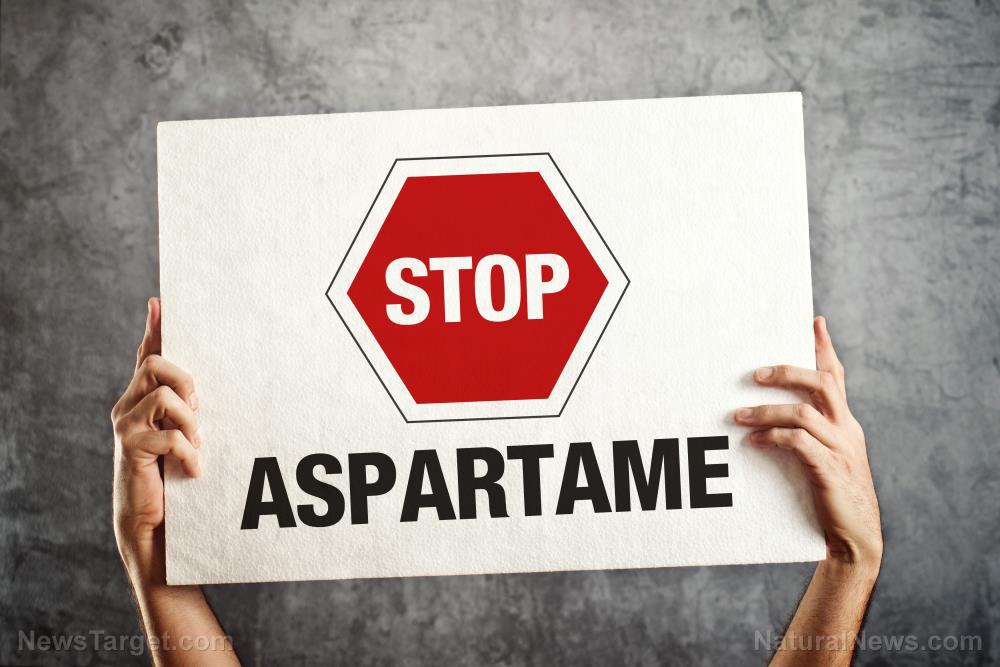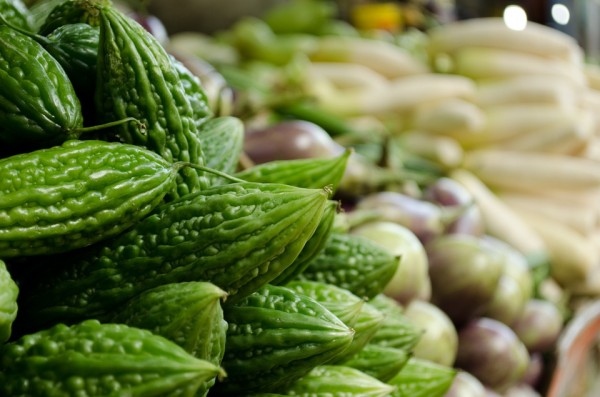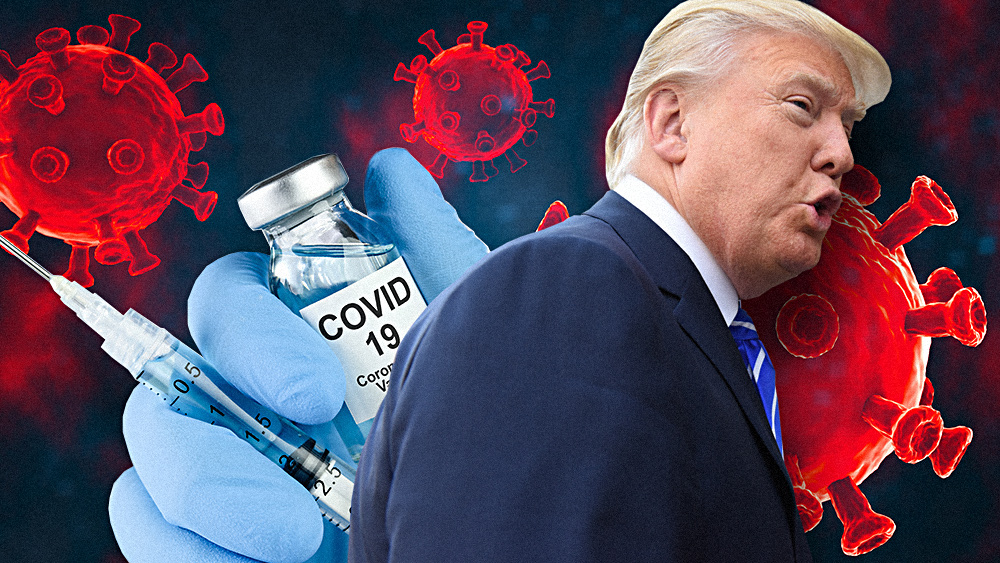 Parler
Parler Gab
Gab
FDA, industry groups disagree with IARC
Not surprisingly, the Food and Drug Administration (FDA), which has no safety concerns about aspartame, took issue with the WHO’s new classification of the artificial sweetener. In a statement, FDA officials claimed that aspartame being labeled by the IARC as "possibly carcinogenic to humans" does not mean that the sweetener is actually linked to cancer. According to the agency, FDA scientists reviewed the scientific information included in the IARC’s review in 2021 when it was first made available and identified significant shortcomings in the studies. The FDA further argued that "aspartame is one of the most studied food additives in the human food supply" and pointed to aspartame's approval for use in many countries. Like the FDA, other regulatory and scientific authorities, such as Health Canada and the European Food Safety Authority (EFSA), also consider aspartame safe for consumption at currently permitted levels. Industry groups have also expressed their disagreement with the IARC's decision. The American Beverage Association emphasized that "aspartame is safe" and pointed to 40 years of science and regulatory approval by more than 90 food safety authorities around the world to support the acceptability of aspartame for human consumption. Meanwhile, the Calorie Control Council, which represents the low- and reduced-calorie food and beverage industry, argued that the "IARC is not a regulatory agency or food safety authority." The council praised the JECFA while blasting the IARC's ruling as "wrong" and "potentially damaging." On the other hand, three large studies, whose findings became the basis of the IARC's decision to label aspartame a possible carcinogen, have shown solid evidence of aspartame's link to liver and pancreatic cancer. A 2014 study involving over 470,000 participants in 10 European countries found that consumption of soft drinks sweetened with artificial sweeteners like aspartame was associated with an increased risk of hepatocellular carcinoma, the most common type of primary liver cancer. A 2022 U.S.-based study also linked the consumption of artificially sweetened drinks to instances of liver cancer in people with diabetes. Meanwhile, the third study, which involved nearly 940,000 people in the U.S., found that men and women who consume large amounts of artificially sweetened beverages have a heightened risk of pancreatic cancer.Lasting health issues linked to artificial sweeteners
A review published in the Journal of Pharmacology and Pharmacotherapeutics presented convincing evidence that artificial sweeteners cause tumors and certain types of cancer. It reported that aspartame, discovered in 1965 as a low-calorie sweetener with a sugar-like taste, has been found by Italian researchers to cause breast cancer, leukemia and lymphoma. (Related: Lasting health issues linked to artificial sweeteners.) A study published in the Proceedings of the National Academy of Sciences (PNAS) also found that aspartame can cause anxiety and neurobehavioral changes, which could be passed down to subsequent generations. While the study was conducted on animals, it raises serious questions regarding the health risks associated with consuming artificial sweeteners like aspartame.Should you stop drinking diet soda?
Dr. Jessica Jones, an oncologist with UTHealth Houston and Memorial Hermann, told Medical News Today that although the connection between aspartame in diet soda and cancer remains unclear, caution is still warranted. Her advice for people who want to make sure their beverage isn’t increasing their risk of getting cancer is to consider ditching soda entirely and move to water or tea. Dr. Matthew Landry, an assistant professor of population health and disease prevention at the University of California, Irvine, noted that aspartame isn’t just in diet soda, but can also be found in chewing gum, dessert mixes, frozen desserts and yogurt. It is also sometimes used in cough drops and dietary supplements. Aspartame is most likely to be found in processed foods and food products labeled "diet" or "sugar-free." "When in doubt, choose foods that are unprocessed – whole fruits and vegetables have no artificial sweeteners or aspartame and have a host of other health benefits like fiber. When you do need to sweeten up a beverage or food, consider honey or maple syrup," Landry advised. Several experts recommend using healthy natural sweeteners that directly come from flowers and plants and undergo very little processing. Examples of these natural sweeteners include balsamic glaze, banana puree, blackstrap molasses, brown rice syrup, coconut sugar, dates, maple syrup, monk fruit, raw honey, real fruit jam, stevia and yacon syrup. Read more about the health risks of consuming artificial sweeteners like aspartame at Sweeteners.news. Watch the following video to learn more about why aspartame is bad for your health. This video is from the Donald Grahn/Truth vs. New$ channel on Brighteon.com.More related stories:
The dangers of aspartame explained. Aspartame danger – urgent warning about tumors and seizures. Bombshell study shows aspartame depletes neurotransmitters in the brain; makes brain vulnerable to chemical damage from food and vaccines. Sources include: TheStar.com NewsNationNow.com Aspartame.org FDA.gov Nature.com Food-Safety.com NCBI.NLM.NIH.gov PNAS.org MedicalNewsToday.com WIONews.com Brighteon.comDr. Jane Ruby: Americans are still in DANGER from the mRNA shots
By Kevin Hughes // Share
USGS: At least 45% of TAP WATER across the U.S. is contaminated with FOREVER CHEMICALS
By Olivia Cook // Share
Study: Bitter melon shows promising results in fighting 6 CANCERS commonly found in women
By Ramon Tomey // Share
Defending the jabs: Prepare for the most massive medical gaslighting in world history
By News Editors // Share
Governments continue to obscure COVID-19 vaccine data amid rising concerns over excess deaths
By patricklewis // Share
Tech giant Microsoft backs EXTINCTION with its support of carbon capture programs
By ramontomeydw // Share
Germany to resume arms exports to Israel despite repeated ceasefire violations
By isabelle // Share










